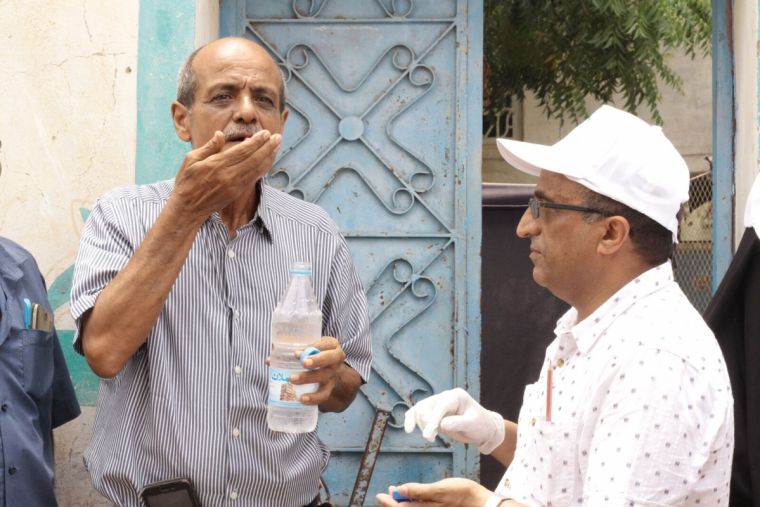Find out how initial trachoma treatments are distributed

* Partner Post
For the first time, medicine for treating blinding trachoma are now being distributed to thousands of residents from distant sections of war-torn Yemen.
The pharmaceutical group Pfizer provided upwards of 444,000 shots of the medication Zithromax®. It was driven by local medical leaders through battle zones and beyond roadblocks to the Ibb and Al Hodeidah rural areas, where trachoma – a severe but treatable eye condition – presently prevails.
An organization exceeding 4,000 mostly female aides went canvassing in the neighborhoods of 273 communities to make sure the treatment was delivered securely to the people who needed it. The missionaries that worked on the project were primarily female due to the reason that they attend homes to help women and children more easily, whereas men are usually not allowed due to local cultures.
The qualified enlistees also shared wash kits including cleanser and hygiene information provided by the World Health Organization (WHO) to further inhibit the range of the virus.
The nation's premier bulk drug policy to guard people against blinding trachoma became the effect of international cooperation among Sightsavers, the WHO, the Yemen Ministry of Health, the Fred Hollows Foundation, the CBM, and the International Trachoma Initiative.
Trachoma, one of Earth's earliest infections, is a contagious disease which is largely spread by human contact and flies. It begins as a bacterial virus, and if it's left to remain untreated, scar tissue forms on the eyelids, shifting the eyelashes inside. After each blink, eyelashes irritate the covering of the eye and may produce permanent blindness. It's one of a collection of ailments identified as neglected tropical afflictions.
Approximately 2.5 million people live with the danger of trachoma in Yemen, in accordance with data collected as a section of the Sightsavers-led Global Trachoma Mapping Project (GTMP). This nation has been destroyed by numerous years of civil war, and numerous citizens suffer from an unsatisfactory water supply and inadequate hygiene – situations which benefit the spreading of trachoma.
Sightsavers Head of Neglected Tropical Conditions, Simon Bush stated that checking to make sure trachoma medicines reach the people that require them in distant and poverty-stricken areas is difficult in any condition. However, in a war-torn land such as Yemen, the challenges are enormous. It's a nation where people abandon their houses when they wake up without being able to know if they'll return reliably that evening.
He continued by saying that despite the probabilities, villages, the department of health and global teams have worked hand-in-hand to make sure that approximately half a million people are guarded against a painful and possibly blinding condition. It's a tremendous feat that displays what cooperation and collaboration can achieve, even in a land beset with friction.
Simon Bush went on to say that the things discovered in Yemen may also have life-altering indications for eradicating trachoma as a common health predicament all over the globe – an aim that an international group of allies is on the brink of reaching. We can't neglect villages in regions of opposition and crisis without help.
Check out more about Sightsavers below











